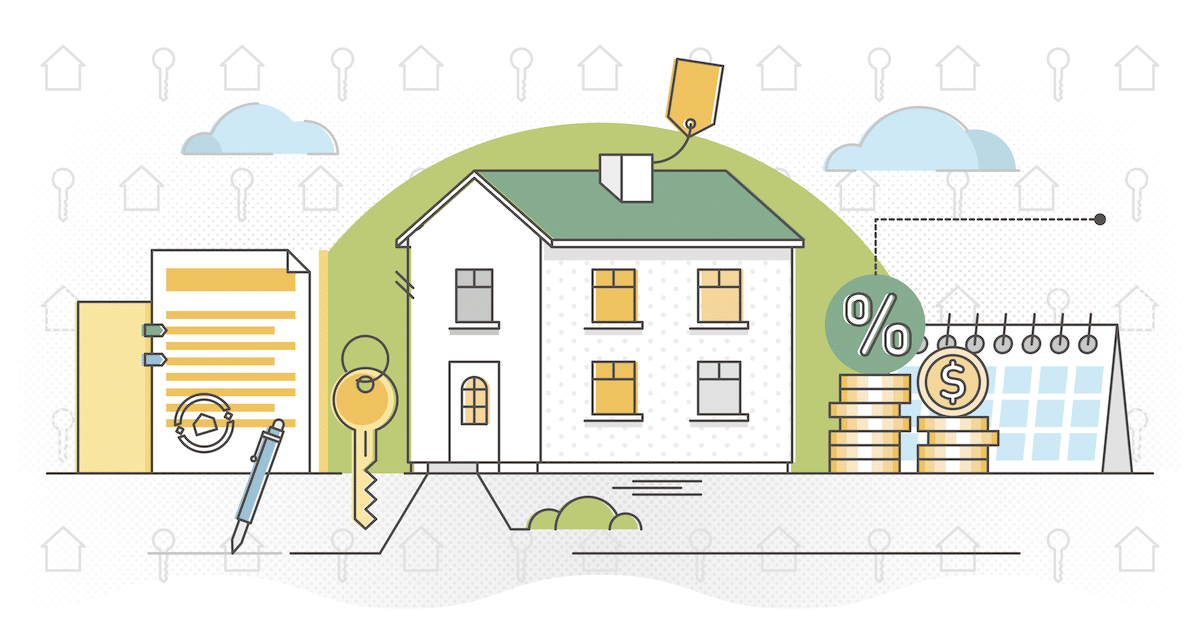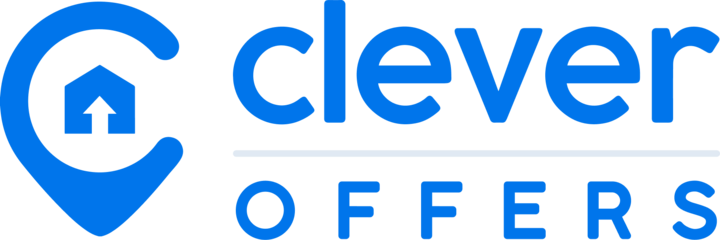
Published
The best iBuyers | Should you sell to an iBuyer? | How iBuyers work | Are there iBuyers near me?
What is an iBuyer?
An iBuyer is a real estate company that uses technology to make near-instant cash offers on homes.
When you sell your home to an iBuyer, you can pick your closing date to be as little as 8 days or up to 60 days after the initial offer. You also don’t need to make repairs before you sell, and you can stay in your home a few extra days after closing if you need more time to move out.
The trade-off for a convenient sale is that iBuyers usually pay a lower purchase price than you could get on the open market.
iBuyers are active in only 50+ U.S. cities, but these companies continue to expand into new markets as more home sellers look for a fast, convenient way to sell.
What types of homes do iBuyers purchase?
In general, iBuyers purchase houses built after 1930 that only need cosmetic repairs before they can be resold. Distressed properties that need significant repairs or upgrades usually won’t qualify. If you can’t sell to an iBuyer, you could try selling your house as is on the market or selling to a “we buy houses” company.
| iBuyer purchase criteria |
|---|
| 🏠 A single family residential home, condo, or townhome |
| 🌻 On a 0.5 to 1.5 acre lot |
| 🆕 Built after 1930 |
| 📌 Within an eligible service area |
| 💰 Valued at $100,000 to $600,000, or up to $1.4 million in certain markets |
Who are the top iBuyers and companies that buy houses for cash?
| Company | Our Rating | Type | Service Fee | Time to Close | |
|---|---|---|---|---|---|
|
Best overall

Clever Offers |
3,050 reviews
|
Cash offer network
|
None
|
Varies
|
Compare Offers |

Opendoor |
3,801 reviews
|
iBuyer
|
5%
|
14–60 days
|
Learn More |

Offerpad |
2,767 reviews
|
iBuyer
|
5%
|
8–90 days
|
Learn More |

Orchard |
614 reviews
|
Home trade-in
|
1.9% + 6% brokerage fee
|
14–60 days
|
Learn More |

Knock |
834 reviews
|
Home trade-in
|
2.25% + $1,850 loan fee
|
Varies
|
Learn More |
These are our top picks for iBuyers and other cash buyer companies. Technically, only two true iBuyers are still in business: Opendoor and Offerpad. But some companies, like Orchard and Knock, also make instant offers on homes and have similar business models.
You can also find companies like Clever Offers that don’t buy homes themselves, but they allow you to compare cash offers from multiple buyers — including iBuyers. That way, you can easily find the most competitive offer.
Service Fee
Time to Close
Our take
Overview
Clever Offers provides a hassle-free way to compare offers from leading investors across the U.S. The 5-star rated company can help you source up to 10 competing cash offers from investors in their network — sparking competition and helping you make a more informed decision. Read our full Clever Offers review.
Pros
- One source for multiple competing offers
- Buyers are screened for experience and proven success at closing deals
- Clever stays with you to ensure a smooth closing and resolve any issues that arise
Cons
- Some offers may be low
- Alternative deal types may have longer closing timelines
- Cash offer options may be limited in some areas
Clever Offers sets you up with a real estate agent, who then gets you offers from multiple iBuyers and cash buyers. Your agent walks you through the details of each offer, which allows you to better understand which one is the best value.
Clever Offers is unique because it allows you to compare these cash offers with what your home would get on the open market. You’ll know all your options so you can make the best decision for your wallet and timeline.
With Clever Offers, you can also list with your agent if you decide not to take any cash offers. And unlike the competition, if you do list with an agent, you’ll pay a reduced listing fee of 1.5% — about half the typical rate.
Service Fee
Time to Close
Our take
Overview
Locations
Opendoor pays much closer to market value than traditional house flippers while still offering the benefit of fast closings and no repairs. For that convenience, you’ll need to contend with stricter purchase criteria, repair deductions, and a service fee of 5%. Read our full Opendoor review.
Pros
- Pays closer to market value than traditional home flippers
- No need to make repairs or prep your home for sale
- Choose your closing date and change it if needed
Cons
- Final offers can be significantly lower than the initial estimates
- Stricter purchase criteria than traditional home flippers
- Repair deductions and 5% service fee can eat into profits
Opendoor was founded in San Francisco in 2014. It’s the largest iBuyer in the country, serving over 50 markets. The company can make cash offers in just 24 hours and close in 14–60 days.
How it works: To sell to Opendoor, you fill out a form on its website with information about your property, including the address, photos, a description, and recent renovations. Then Opendoor extends an initial offer, which it may change depending on the home inspection and repair costs.
Opendoor is currently available in 50+ major markets in AL, AZ, CA, CO, FL, GA, ID, IN, KS, MA, MI, MN, MO, NV, NJ, NM, NY, NC, OH, OK, OR, SC, TN, TX, UT, VA, WA, and Washington, DC.
Service Fee
Time to Close
Our take
Overview
Locations
Offerpad pays more for homes than traditional house-flippers and also offers great perks, including free local moves and flexible closing windows of 8–90 days. However, customers claim it charges high fees for repairs uncovered during the home inspection. Read our full Offerpad review.
Pros
- You can close in just eight days (15 in FL and GA)
- You can stay in your home for three extra days past your closing date at no charge.
- Sellers get free local moves and a 3-day free extended stay after closing
Cons
- Strict purchase criteria compared to traditional house flippers
- Repair deductions can greatly reduce your final offer
- 1% cancellation fee for backing out after accepting the final offer
Founded in 2015, Offerpad is an iBuyer based in Phoenix, Arizona. It generally makes all-cash offers for homes in 24 hours.
How it works: To sell your home to Offerpad, you fill out an offer request form on the company’s website, including information like the address, your contact details, and photos of your home.
Offerpad is available in 21 major markets across AZ, CO, FL, GA, IL, IN, KS, MO, NV, NC, OH, SC, TN, and TX.
Service Fee
Time to Close
Our take
Overview
Locations
Orchard is a decent option if you want to try selling on the open market, but you like the certainty of having a backup cash offer. Its buy-and-sell program lends you the equity from your current home to make an offer on a new one — meaning you don’t have to wait for your house to sell to free up the cash for a down payment. The company then helps you list your home on the market and gives you a guaranteed cash offer to fall back on. The downside? Orchard fees start at ~8% of the sale price. Read our full Orchard review.
Pros
- List on the open market, have a cash offer to fall back on
- Make a more secure, competitive offer when buying
- Avoid paying overlapping mortgages out of pocket
Cons
- Service fees are ~8% of your home sale price
- Orchard’s backup offer is less than market value
Orchard is primarily a home trade-in service that allows you to buy a new home before you sell your current one. You use the equity in your current home to take out a loan with Orchard, which you then use to make a cash offer on a new home.
Once you buy your new home, you list your old home on the open market. If it doesn’t sell after 120 days, you can take a cash offer from Orchard.
You can also simply list your home with Orchard without buying with the company. Again, you can take a cash offer from Orchard if your house doesn’t sell on the open market within 120 days.
Orchard operates in the following areas:
For sellers: Atlanta, Austin, Dallas–Fort Worth, Denver, Houston, San Antonio
For buyers: AZ, CA, CO, FL, GA, KS, NC, OK, OR, PA, SC, TN, TX, WA
Service Fee
Time to Close
Our take
Overview
Locations
Knock’s bridge loan offers a convenient way to buy a new house without having to sell your old one first. But you’ll have to pay a minimum of 2.25% in service fees on top of the usual home-selling costs. Read our full Knock review.
Pros
- Put an offer on a new home without it depending on your old one selling
- Use Knock’s bridge loan to cover your down payment, moving expenses, and home prep
- Choose your own listing agent to sell and mortgage lended to buy
Cons
- Service and loan fees add 2.25%, plus $1,850, to your home selling costs
- Backup cash offer will be ~20% less than your home’s market value
- May have up to 6 months of ongoing mortgage costs while your house sells
Knock is a home trade-in service. Its Home Swap program lets you tap into the equity of your current home to make an offer on a new one. This setup allows you to move into your new home before you sell your old one.
After you buy your new home, you then list your old home on the open market with Knock. If it doesn’t sell after six months, you can take Knock’s guaranteed cash offer instead.
The company also offers Knock GO for buyers, which is a loan based on your home’s current equity. You can use the loan to make a cash offer on your new home. Many sellers tend to favor cash offers since they’re less likely to fall through.
Knock is available in AZ, CA, CO, DC, FL, GA, IL, MD, MI, MN, NC, NJ, OH, OR, PA, SC, TN, WA, and WI.
Should you sell to an iBuyer?
Here are three reasons selling to an iBuyer might make sense for you.
You want a quick sale
Using an iBuyer makes sense if speed and convenience matter more than getting the best price for your home. Selling to an iBuyer is usually much faster than the traditional home sale process.
You can receive cash offers in as little as 24–48 hours and close in as little as 8 days. That’s just over a week from the time you submit an offer request to having cash in hand — a stunning pace for something as large as a home sale.
If you’re under time pressure because you’re starting a new job, or you inherited a property you don’t want, an iBuyer can take your home off your hands quickly. And they can pay a price that’s close to what you’d get on the open market.
You want an easy sale
Selling to an iBuyer might be the easiest way to sell your home, whereas the traditional home selling process takes more time and effort.
When you sell with a real estate agent, you’ll likely have to stage your home, which can include cleaning, rearranging, and redecorating. You might also have weeks of showings with strangers walking through your home. And once you get an offer, there are negotiations and counter-negotiations — and the sale could still fall through!
Selling to an iBuyer is more of an open-and-shut transaction. An iBuyer will likely have an inspector come to your home once to survey its condition, and then if your home qualifies, you’ll get an offer. The offer is usually non-negotiable, so you don’t have to stress about haggling.
You don’t want to worry about repairs
Traditional sales often require repairs and upgrades to the home. These updates could include anything from a fresh coat of paint to new light fixtures to an overhaul of the kitchen, which all take time and money.
If you sell to an iBuyer, you don’t need to make any repairs or upgrades. They purchase your home as is, deduct repair costs from your offer, and take care of the repairs after closing.
How do iBuyers determine how much your home is worth?
One of the main innovations of the iBuyer industry is its use of data analytics to determine home values. The exact ways iBuyers do this are closely guarded trade secrets, but we know some of the factors they look at.
Comparable sales
One of the easiest ways to establish a home’s value is to look at what similar homes recently sold for. Comparable homes are similar in size, condition, and location.
Your home’s condition
iBuyers conduct an in-person inspection to determine your home’s condition and estimate repair costs. They don’t buy homes in poor condition, so if your home needs a lot of work, they’ll likely pass.
Their own data sets on home values
Most iBuyers use a tool like an automated valuation model (AVM) to help price homes. AVMs use an algorithm and data from thousands of real estate transactions to estimate what a home might sell for on the open market.
Input from local experts
iBuyers also consult experts in the local real estate industry. These experts look at the value estimates from analytic tools and tweak them based on local market dynamics. When it comes to your property’s value, what matters most isn’t what’s happening nationally — it’s what’s happening in your town, in your neighborhood, or even on your block.
Pros and cons of selling to an iBuyer
Pros
- You can get an all-cash offer in just a couple days and close in as little as 8 days.
- iBuyer companies pay closer to fair market value than other cash buyers.
- The selling process is more automated and predictable than a traditional home sale.
Cons
- iBuyers only buy properties in relatively good condition and in select areas.
- You have to pay a service fee comparable to traditional realtor commissions.
- There’s no room to negotiate your cash offer, and it’s less than you’d get on the open market.
How does iBuying work?
Selling your home to an iBuyer
Selling your house to an iBuyer typically involves these steps:
- You submit an online form. The form includes information about your property’s location, condition, size, and more. If the iBuyer determines that your home is eligible for purchase, it asks for more detailed information, including square footage, how much you owe on your mortgage, and photos.
- The iBuyer quickly makes an initial cash offer — often within hours or days. The offer is usually non-negotiable. If you accept, you typically sign a purchase agreement online.
- The iBuyer sends an inspector to view your property or asks you to do a virtual inspection via video call.
- The iBuyer deducts the cost of needed repairs (if any) from your cash offer. Some iBuyers allow you to have your own contractor make repairs, but the iBuyer must inspect and approve the results.
- You accept or reject the final offer. If you accept, you get to choose the closing date within the iBuyer’s flexible window, often 10–60 days.
- You fill out the final sale paperwork at the iBuyer’s title or legal office on the closing date. The iBuyer then transfers payment to your bank account.
Buying a home from an iBuyer
Purchasing a home from an iBuyer is a simple process that usually follows these steps:
- Download the app. Opendoor and Offerpad use an app to handle almost the entire purchase process. You can even unlock their properties with your smartphone for a private viewing.
- Browse the listings. On the app, you can browse all the properties the iBuyer has for sale. In most apps, you can also look at other properties on the market, with an option to use one of the iBuyer’s real estate agents to submit an offer.
- Submit an offer. You can submit an offer directly through the app. Because iBuyers almost always refurbish the homes they buy, you should probably view them as finished products. Trying to negotiate further repairs or improvements will be tough.
- Close when you want. If the iBuyer accepts your offer, the next step is to choose a closing date. You can close in less than 2 weeks or up to 60 days.
Are there iBuyers near me?
The top iBuyers are mostly active in major metros in the southern states, but they’re expanding into new cities. Select your state from the drop-down menu to see which iBuyers and cash buyer companies are currently available in your area.
| Company | Service fee | |
|---|---|---|
| Clever Offers | Alabama, Alaska, Arizona, Arkansas, California, Colorado, Connecticut, Delaware, District of Columbia, Florida, Georgia, Hawaii, Idaho, Illinois, Indiana, Iowa, Kansas, Kentucky, Louisiana, Maine, Maryland, Massachusetts, Michigan, Minnesota, Mississippi, Missouri, Montana, Nebraska, Nevada, New Hampshire, New Jersey, New Mexico, New York, North Carolina, North Dakota, Ohio, Oklahoma, Oregon, Pennsylvania, Rhode Island, South Carolina, South Dakota, Tennessee, Texas, Utah, Vermont, Virginia, Washington, West Virginia, Wisconsin, Wyoming | Varies |
| Opendoor | Alabama, Arizona, Colorado, Florida, Georgia, Idaho, Indiana, Massachusetts, Michigan, Minnesota, Missouri, Nevada, New Mexico, North Carolina, Oklahoma, Oregon, South Carolina, Tennessee, Texas, Utah | 5% |
| Offerpad | Alabama, Arizona, Colorado, Florida, Georgia, Indiana, Nevada, North Carolina, South Carolina, Tennessee, Texas | 6% |
| Orchard | Colorado, Georgia, Maryland, North Carolina, Oregon, Texas, Virginia | 6% |
| Knock | Arizona, California, Colorado, Florida, Georgia, Illinois, Maryland, Michigan, Minnesota, North Carolina, Oregon, South Carolina, Tennessee, Texas, Washington | 2% |
You can also use a free service like Clever Offers to compare fair cash offers from iBuyers and other investors near you.
When you request an offer through Clever, their team sources offers from local and national investors, as well as iBuyers. You can also explore alternative home sale options, like seller financing or listing with a local realtor.
A customer service representative, known as a Clever concierge, stays with you throughout the offer process to answer any questions about your offers and make sure the buyer follows through on their end of the deal if you decide to proceed.
If you decide to list your home on the open market instead, you’ll only pay a 1.5% listing fee — about half of what most realtors charge.
FAQ about iBuyers
What does "iBuyer" mean?
The "i" in iBuyer stands for "instant," since iBuyers can make fast cash offers on homes. The term was coined by research analyst Stephen Kim in 2017. iBuyers make competitive offers, but they generally don't pay as much as you'd get on the open market. Learn more about iBuyers.
Which iBuyer is best?
Opendoor is the best iBuyer overall because it has the lowest service fee (5%), operates in the most cities, and has the most additional services (e.g., home trade-in, refinancing). Read our full Opendoor review.
Who is the largest iBuyer?
Opendoor is the largest iBuyer, followed by Offerpad. In 2021, Opendoor set a new record, purchasing more than 7,000 homes from April through June. Opendoor is also active in the most markets — currently over 50 cities across the country.
Recommended reading
The Best iBuyer Companies: Opendoor, Offerpad, and RedfinNow are the best iBuyers to sell your house to. Read our complete guide to find out what makes each of the top iBuyers unique, and which one is best for you.
We Buy Ugly Houses: The Good, the Bad, and the Ugly: You’ve seen their signs on the side of the road, or nailed to telephone poles. But how much do you really know about “We Buy Ugly Houses”? This guide details everything you might want to know about how they operate, and why you should (or shouldn’t) use them.
Opendoor: Reviewed and Explained: This leading iBuyer will buy your home for cash, and potentially close in a week. But are they too good to be true? Our definitive guide to Opendoor covers everything from their business model to how they compare to their competitors.
Discount Real Estate Agents and Brokers: Scam or Legit? You get what you pay for, as the saying goes. So what do you get for a discount agent? This guide tells you exactly what you can — and can’t — expect if you decide to use a discount real estate agent.


Leave a Reply